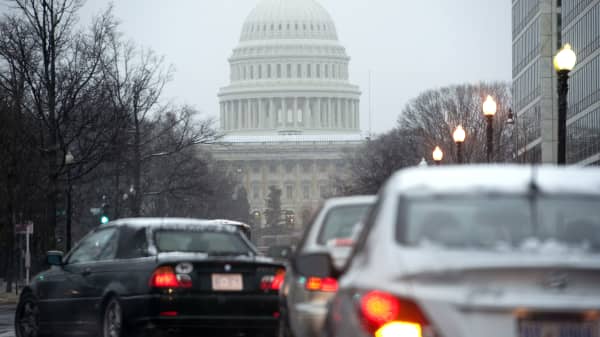

It is much easier to find mutually acceptable solutions - even to something as daunting as our fiscal challenges - using such an approach, sometimes referred to as "win-win bargaining." In the partisan political realm, this means our elected officials would help us define our real interests rather than holding so tightly to the constricting narrow positions we have traditionally used as substitutes for those interests. "Interest-based bargaining," in which the two sides start with declarations of their interests rather than with specific proposals, is based on this principle. The key to getting at this root cause is for the representatives to lead in service to the interests of their constituents rather than to follow their narrow positions. "Getting primaried" has become a term of art in describing the power of intractable constituencies over their representatives. While representatives from differing parties might be capable of sitting down and working out solutions, their constituencies almost certainly will punish them for "selling out." We see this in labor negotiations and jurisdictional conflicts as well as in our national fiscal debate. Second, gridlock can be rooted in what organizational behaviorists call "representative dynamics." This phenomenon occurs when each constituency, organization or jurisdiction is represented by someone-a legislator, for example-to advance their interests.

Could the definition of success be redefined? Could the voters decide to make the perpetuators of partisan gridlock the losers and those who sit down to work out a deal for the common good the winners? Could the media revisit how it defines this issue? They are tired of having the common good be the loser. Who will "win?" Because neither side can afford to let the other win, gridlock is perpetuated. For example, today we are conditioned to think that the debate over federal fiscal policy is a competition between Republicans and Democrats. The solution lies in changing the rules about winning and losing.

The engineering solution is not to focus on the congestion in our intersection but to go back to the root cause of the backups at those adjacent intersections. It is caused by the backup of traffic from an adjacent intersection, which is caused by a backup at another adjacent intersection, and so on. Imagine we are experiencing congestion in an intersection.

The term of course, comes from a form of traffic congestion that sometimes occurs in cities with a grid-pattern street layout. When action that would benefit the common good is inhibited by differences among individuals, groups, organizations or political parties, we call it gridlock.


 0 kommentar(er)
0 kommentar(er)
